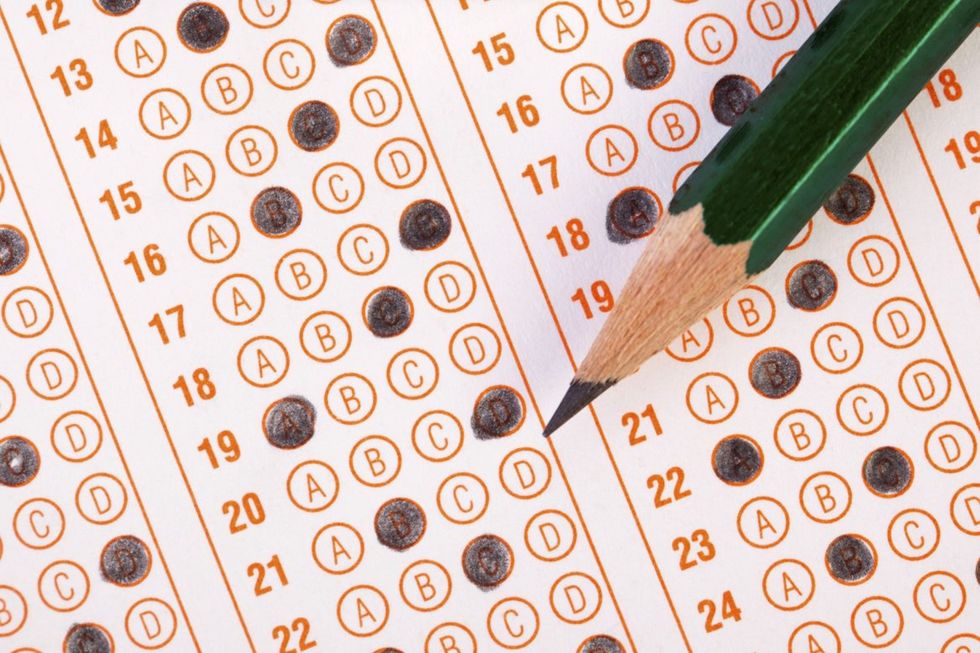According to The Washington Post, students endure roughly 112 mandatory standardized tests between ages 5 and 18 before graduating high school. Keep in mind that this number does not include major university admissions exams such as the SAT and ACT. Upon entering Pre-K, children are expected to sit for approximately 8 standardized tests per year amounting to a whopping 280-350 hours of total testing by the time they have completed 12th grade. Due to the fact that scores on these tests do not evaluate a student's progress so much as an institution's ability to 'properly' educate, most class time is spent solely teaching children directly from the textbook and regularly assessing their knowledge and test-taking abilities in order to prepare them for these exams. In other words, schools lack real-world learning because they are too concerned with trying to meet the necessary requirements to keep their institution open and maintain governmental funding.
Yes, periodic standardized tests are known to help prepare college-bound high school students for the SAT and ACT. However, little can be said of how well students are truly prepared to perform in college beyond gaining acceptance from exceptional test scores. University teaching is in an entirely separate class of its own. There is a reason why most professors attend university for nine years or more before securing their job. It is not merely to take on an additional five years of tests. It is essential to test knowledge through hands-on experiences. A professor did not achieve his or her job offer without former teaching experience. Grad school is a gateway for teaching and research assistantships. These careers help prepare soon-to-be professionals for their trade.
Similarly, high school students who do not plan to approach a career that requires a college education are cheated of the opportunity to try their hand at learning the necessary skills to perform their desired job due to collectively requiring everyone to commit their time and efforts into tests that may or may not pertain to their goals. In other words, school systems are currently designed to produce identical graduates. With the use of standardized tests, schools have eliminated creativity and free-thinking. Yet we wonder why so many eighteen year olds have little-to-no motivation to figure out what they wish to do for the rest of their lives when the only true skill that was ever impressed upon them is the ability to take tests—something most everyone fails to find joy in.
At the very least, these 300 some hours spent sitting for standardized tests should arguably be cut in half in order to allot time to teach children real-life skills that have gradually become known as "adulting" such as: cooking, doing taxes, understanding mortgages, loans, and other necessary life lessons to get them on their feet once they are no longer chained to a classroom.
















